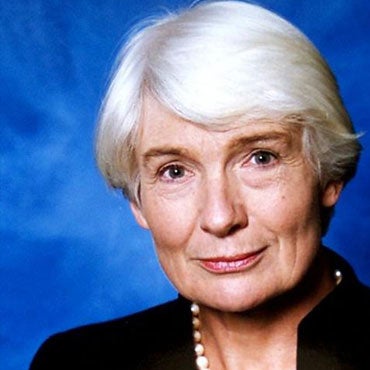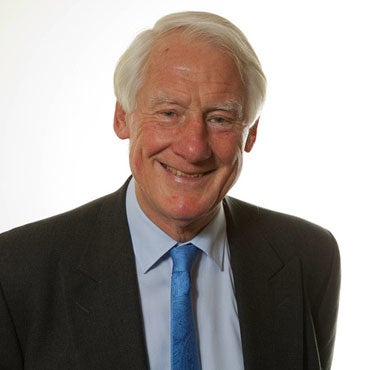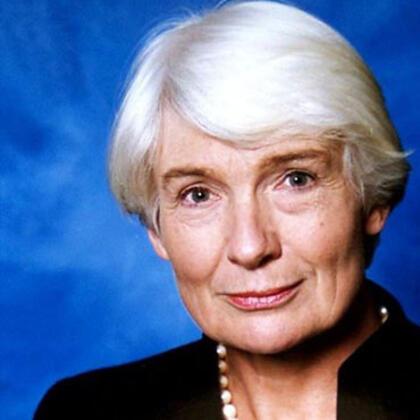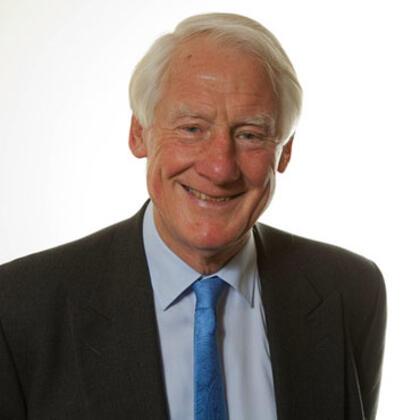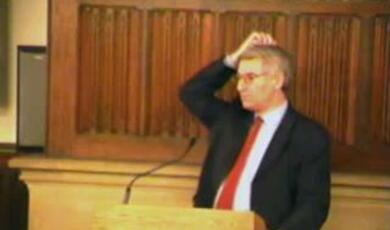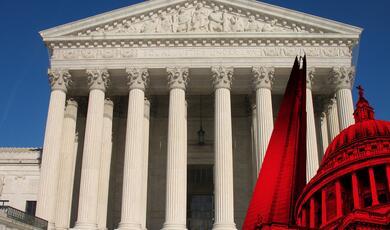Public Inquiries: The Shipman Inquiry
Share
- Details
- Transcript
- Audio
- Downloads
- Extra Reading
A discussion of lessons that can be learnt from the work of public inquiries and tribunals: their composition, processes and consequences.
The eminent speakers include the chairs of the following inquiries: the inquiry into the 2003 Irag War, the Shipman inquiry, the inquiry into the Soham Murders, the inquiry on 'Baby P' and the inquiry into the death of Victoria Climbié.
This second part of the seminar included the following talks and presentations:
The Shipman Inquiry: Was it worth it?
by The Rt Hon Lady Justice Smith
My Experience of Inquiries as Inquisitor and Victim
by The Rt Hon Lord Butler of Brockwell
Download Transcript
Public Inquiries
The Shipman Inquiry: Was it worth it?
The Rt Hon Lady Justice Smith
14/09/2010
Thank you to Gresham College for inviting me to speak this afternoon and particularly to make up a team otherwise comprising three Lords a Leaping.
I called my talk "The Shipman Inquiry: Was it worthwhile?" This title was chosen at a time when I had not really thought about what I was going to say. I was being pressed to think of something and said the first thing that came into my head. But in the end, it turns out to be a reasonably apt title for what I want to talk about.
The short answer to the title question will be rather dusty; in a way yes; in other ways no.
Let me remind you of what the Shipman Inquiry did. Harold Shipman was a general practitioner in Hyde near Manchester. In August 1998 he was arrested on suspicion of the murder of one of his patients. After a police investigation he was charged, tried and convicted of the murder of 15 patients although the police suspected that he might have killed rather more. After the trial, an inquiry was announced with Lord Laming in charge. In fact his brief was to conduct an inquiry in private. The families of the victims were displeased as they expected a public inquiry. They took judicial review proceedings and succeeded. The private inquiry was disbanded and I was appointed as chair of the public inquiry. My brief was to examine the systems of control and monitoring which had apparently failed so as to allow Shipman to get away with murdering his patients. I chose to sit alone rather than with a panel, an issue to which I will return in due course.
My terms of reference seemed to me to be a dog's breakfast but I was allowed to recast them and contrived to leave open the option of whether I made a full investigation of the extent of Shipman's criminal activity. The Government wanted to know how to improve the systems and - so said the Secretary of State for Health, Mr Alan Milburn, - quickly. But I had a gut feeling that I was going to have to look at all the suspicious deaths. Once I arrived in Manchester I soon became convinced that the absolute priority for the people of Hyde was: Who had Shipman killed? So I decided to embark on a major factual investigation.
This decision roughly doubled the length of the inquiry from two years to four and probably doubled the cost; the investigation was labour intensive. But it was the right thing to do; it would have been dreadful in my view to have a public inquiry into all the control systems and yet to leave the families with unanswered questions.
So, we took on a large number of part-time solicitors and paralegals and investigated the circumstances of the death of every patient who had died while Shipman's patient. That covered a period of 24 years. Of the 1000 files we opened, we were able to close about half without full investigation because he obviously could not have been involved in the death; it took place in hospital or abroad or was as the result of an accident. But we examined about 500 cases in depth and I wrote an individual report or mini-judgment explaining the circumstances of each death, the medical history, Shipman's actions and involvement and reaching a conclusion as to whether the death was natural or had been caused by him. I was able to identify 218 deaths where I was satisfied at least on the balance of probabilities (but in some cases to the criminal standard of proof) that Shipman had killed the patient. There were also about 60 or so more deaths where I was deeply suspicious that he might have killed the patient but the evidence was not sufficiently convincing for me to reach a definite conclusion.
My first report which described Shipman's criminal career and annexed the individual decisions was published in July 2002, about 18 months after we started work. By the time the whole inquiry was finished the cost to the public purse was about £21 million. Let us say that the first stage cost about £10 or 11 million. Was that part of the inquiry worth it? Yes, beyond doubt because it provided the families with reliable answers to their questions, in a reasonably short time, fulfilling what I see as the state's duty to investigate a death for which a servant of the state may have been responsible and incidentally providing the inquiry with a panoramic view of his actions and methodology on which to base my consideration of the systems failures.
To my mind, this first stage entailed the kind of subject matter to which the public inquiry is ideally suited. What happened? What are the facts? The inquiry has the power to command the production of both documentary and witness evidence and, unlike a court case, it has no agenda. Where there is a real public interest in the facts being openly and thoroughly investigated, there is nothing quite like a public inquiry. When all the inquiry is doing is to find out what happened, there is usually no need for recommendations and therefore the outcome is measured in terms of public confidence in the independence, thoroughness and impartiality of the inquiry.
When the inquiry makes recommendations for change, its success or "worthwhileness" will be measured in terms of outcomes - usually legislative or regulatory outcomes. And it may be much more difficult to achieve success in that way.
So far as this first stage was concerned, I am sure that my decision to sit alone was right. The function of hearing and sifting evidence and sorting out what happened is every day meat and drink to a judge. It would have been immensely time consuming to have to discuss each individual case with a panel.
In respect of the first stage, I think we did pretty well and I am quite proud of the result.
I will not burden you with an account of the second stage which was concerned only to discover why the police failed to realise there was a problem with Shipman when it was reported to them in early 1998 that his death rates seemed abnormally high. The second report revealed a piece of dismally incompetent police investigation.
I then embarked on examination of our systems of death certification and coroner's investigations. I found that Shipman always signed the death certificate himself, thereby avoiding referral to the coroner. Where the body was to be cremated, and the cremation certificate had to be countersigned by another doctor, he spun the other doctor a plausible account of the death and obtained the signature. I discovered that it was common practice for the second doctor not to make any enquiries of his own, but to accept the account given by the treating doctor so long as it appeared plausible. I also discovered that the medical referee who was supposed to scrutinise the completed certificates often did only an administrative job, merely ensuring that the forms had been completed. The fact that the story the forms related might give rise for concern that this was a rather surprising death was not regarded as any concern to them. In short the systems were not working at all.
My third report published in July 2003 made recommendations for the reform of our systems of death and cremation certification and of coroners? practice. I was not the first or only toiler in those fields. In the 1970s, the Brodrick Committee had covered much the same ground but its recommendations to Government had been put in the "too difficult" drawer. And even while I was working on this subject, a Home Office review panel chaired by Tom Luce was covering similar although not identical ground to my inquiry. Our conclusions, reached by very different methodologies, were remarkably similar. You might have thought that would have given our recommendations greater clout. Not so. They were greeted with apparent approval and apparent gratitude but positive proposals were slow to emerge. I had a number of meetings with David Blunkett the Home Secretary who at that time was taking the lead and in due course he produced a position paper which went quite a way towards the Luce/Smith wishlist. But then he had to resign and the position paper was abandoned. Ah! the unforeseen consequences of an unwise affair.
Next time any one in government thought about it, these issues two or three years later, responsibility had been transferred to the Department of Constitutional Affairs. Lord Falconer was in charge. A statement was made in the House but the proposals failed to achieve any of the main Luce/Smith objectives. After consultation it appeared that they pleased no one and the government went back to the drawing board. The next attempt resulted in the Coroners and Justice Bill which was eventually passed onto the statute book in 2009. That went some way to meeting our recommendations albeit in a rather diluted form. But the Act itself is not capable of implementation without the preparation of secondary legislation. That was not achieved before the general election and the change of government. I regret to say that I am not confident that the Act will be implemented at all.
Was the subject matter suitable for a public inquiry? I have to admit that I think not. I think Tom Luce's review was probably a cheaper and more effective method of examining the shortcomings of those systems. The advantage of the public inquiry is that, if the public really wants to follow the arguments (which in practice it soon gets bored with) it can do so. But there are disadvantages. One is that the approach to the systems examination is inevitably skewed by the subject matter of the inquiry. In my case, the shortcomings of death certification were examined through the lens of what Shipman did and got away with. And although I strove the reduce this effect by seeking to devise a system which would work well for society as a whole, those who did not like my proposals could easily say (and did) that there was no need for such radical reform just because of one rogue doctor. They could not say that about Tom Luce's proposals because they had been conceived following a general examination of the ways in which the systems worked.
Should I have attempted this part of the inquiry alone or should I have asked for a panel? I have mixed feelings about this. I recognise the value of bringing in people who have in-depth experience of the subject matter. In theory, their involvement should ensure not only greater efficiency but should avoid the risk of a lone uninitiated decision maker going off on an impracticable frolic of her own. Yet there are real disadvantages to the use of panels. An expert in any field has definite views on his or her subject. He will inevitably bring this baggage to the inquiry. If the other members of the panel regard him as the expert on a particular topic, there is a danger that they will defer to his view. What is more (and in a sense worse) is that the public and participants will not necessarily know what those views are because they may not be expressed in public. The interested parties will not have the chance to challenge them openly and may not even know that they need to. On the other hand, where the decision maker has no expertise, he or she must hear a variety of expert viewpoints, all of which are aired in public and all of which are then open to challenge.
On Shipman, I was the sole decision maker and I had no previous knowledge or ideas about the issues. I had a medical adviser who sat with me and was always available to explain medical matters to me. Of course, he formed views about the various issues which were coming up for decision. When I was aware of his view at the stage where we were hearing evidence, I would sometimes say to a witness: "Dr Esmail tells me that such and such is so; do you agree?" In that way I could bring his views into the open. But I have to admit that there were times when he expressed his views to me after the hearings were over and the opportunity for openness was past. I hope I managed to set his views into the context of the evidence as a whole but I was aware that an in-house adviser carries significant influence and the same must be even more so for expert panel members.
So, was that part of the Inquiry worth while? With great regret I have to say that I do not think it will have been.
The fourth stage of the inquiry dealt with the control of dangerous drugs, in particular the diamorphine which Shipman invariably used as his method of killing. I found that there was quite good control at the wholesale distribution stage and also at the retail pharmacy stage but that once the drugs had gone beyond that stage and into the hands of a general practitioner, they were almost completely uncontrolled. I made a number of recommendations. These were considered by the Department of Health and responsibility for action was assigned to Lord Warner.
In my view, he was very good. He appeared to have read the report himself. He told me quite quickly what he was going to accept and what he was going to reject. And he gave me his reasons for rejecting what he did. I did not agree with him. He gave me the chance to try to persuade him but I failed. He then put legislation through implementing the recommendations he liked and they went straight onto the statute book. How much good they have done I don't know because there has been no review of their working so far as I know. Of course, I still think it would have been better if he had accepted the whole package. But that is his privilege as a policy maker and legislator and I have no complaints. What is frustrating is when the government minister does not tell you what he is going to do - or says he is going to act but does not - and gives no reasons for anything he does or does not do.
This part of the inquiry provides an unfortunate example of the effect of examining issues through a particular lens. My focus was on preventing health professionals from deliberately obtaining drugs illicitly. I did not think about accidental misuses by professionals. If I had done, I would certainly have recommended that no GP should ever be permitted to carry a 100mg ampoule of diamorphine in his bag. It is a far greater amount than he could possibly need and there is a risk that he might not realise how much he is injecting. That risk materialised two years ago at the hands of a German doctor working for an out of hours' service. A broader-based investigation of our controlled drugs regulation might have prevented that tragic accident.
Was that part of my inquiry worthwhile? I doubt it.
Then the final part. This was all to do with examining the management structures of the health service as applied to GPs and the regulation of the medical profession by the GMC.
Consideration of the NHS systems turned out not to be an effective exercise because the administrative arrangements had all changed so recently with the creation of Primary Care Trusts. It was clear that, under the previous regime, Family Health Service Authorities had hardly any powers to monitor GPs. The new PCTs had new powers and were just beginning to devise ways in which they might exercise them these were all rather embryonic. Unfortunately, I do not think the ideas have ever had the chance to settle down as PCTs have been chopped and changed so frequently that I have the impression that the staff never get further than settling into their jobs before the PCTs are amalgamated or the boundaries are changed and everyone starts applying for a new job. I profoundly believe that public bodies need to achieve a degree of maturity before they function well. And now PCTs are to be abolished and so far as I can tell nothing will be put in their place.
I made some recommendations about the handling of patient complaints against doctors. They appeared to have been accepted but in practice they have not been implemented.
So far as the GMC was concerned, there were two main issues. One was the means by which the GMC adjudicated upon disciplinary matters; nowadays called fitness to practise issues. One of my main recommendations was that the GMC ought not to be the investigator and the prosecutor and the judge, as it had been from time immemorial. The GMC had seen that criticism coming and, by the time my fifth report came out, had improved the situation by creating adjudication panels comprising people who were not themselves members of the GMC. I was unimpressed by that change because the panellists are not independent of the GMC. They are recruited by the GMC and trained by them. When a member begins to sit, his performance is monitored by the GMC and he might be 'advised' about his performance. If he fails to heed that advice, the GMC can remove him from the panel. So there is no independence. I proposed that there should be an independent body to adjudicate for the doctors and that the other medical or quasi-medical professions such as the nurses, dentists and pharmacists should in due course join in using the panellists provided by this independent body. This was greeted with approval on all sides I think and in due course a provision went through Parliament, without political opposition, I believe, which resulted in the setting up of the Office of Health Professions Adjudicator (OHPA).
That body now exists and has been preparing to start work. Since the election, the Government has decided that it is not prepared to pay for the start up costs. It was always intended that once up and running, the GMC or other regulatory body would pay the on going costs. The Government has decided that it wishes to repeal the legislation. It says that it wishes to 'strengthen the independence of the GMC's adjudicatory body'. The consultation paper now out does not say how this is to be done or how any independence is to be achieved or how the other regulatory bodies are to be brought in. If it were not for the fact that I know that the GMC itself now recognises the need for real independence of adjudication I would be in total despair. I do acknowledge that public expenditure must be cut but it appears most unfortunate if the start up costs cannot be met as the long term advantages both in terms of cost and quality of provision are overwhelming.
The other main issue in the fifth report was the revalidation of doctors - in other words periodic checks on continuing competence. I did not make detailed proposals as to how this should be done; that was beyond my competence. But I pointed out that the current proposals (in 2005) were no more than a rubber stamping exercise - costly, time-consuming and pointless. The Secretary of State (Mr John Reid) accepted that and put the brakes on. There followed a review by the Chief Medical Officer which endorsed and built upon my general ideas. But five years on we still do not have revalidation. The detailed plans are not yet complete and the present government is not encouraging progress. However, there is now a real determination within the GMC and the Medical Royal Colleges to work out something valuable and effective. And I think they will get there in the end.
So in terms of achievement, the fifth report has been very much a curate's egg. But at least it has stimulated discussion and I think may have had some effect in changing the culture of professional regulation.
Looking at the Inquiry as a whole, was it worth the time, energy and resources not only of government money but all the effort other people had to put in? I think, on balance. 'yes' but it will be a close run thing.
©Lady Justice Smith, Gresham College 2010
Part of:
This event was on Tue, 14 Sep 2010
Support Gresham
Gresham College has offered an outstanding education to the public free of charge for over 400 years. Today, Gresham plays an important role in fostering a love of learning and a greater understanding of ourselves and the world around us. Your donation will help to widen our reach and to broaden our audience, allowing more people to benefit from a high-quality education from some of the brightest minds.


 Login
Login

